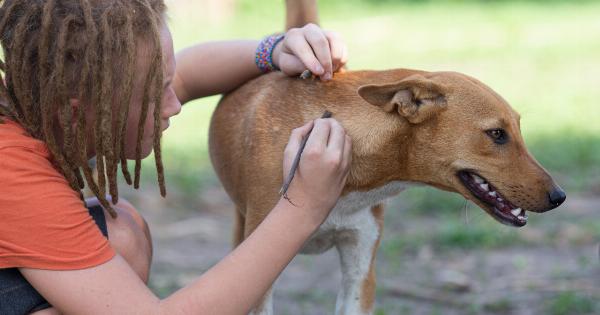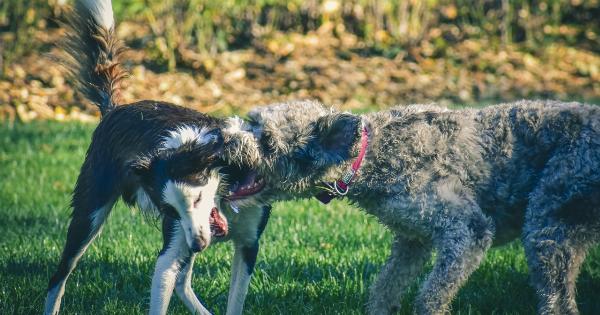Dog bites can cause a variety of injuries, ranging from minor scratches to fatal wounds. Understanding the psychology behind why dogs bite can help us prevent future incidences and develop a better relationship with our animal friends.
In this article, we will explore the underlying reasons why dogs bite and what we can do to prevent it from happening.
The Types of Dog Bites
Dog bites can occur due to various reasons and can be classified differently based on the animal’s behavior. Here are some of the common types of dog bites:.
1. Territorial Aggression
A dog may become aggressive when it feels that its property or household is being threatened. This reaction is common in dogs that are highly protective of their owners or homes.
2. Fear Aggression
Dogs may also display aggressive behavior when they are afraid or feel threatened. This may occur due to previous trauma, poor socialization, or lack of exposure to new environments or situations.
3. Dominance Aggression
Dogs with a strong sense of dominance may exhibit aggressive behavior towards other dogs or individuals. Such dogs may try to establish themselves as the alpha of their pack and can become hostile when they feel challenged.
4. Predatory Aggression
Dogs may exhibit hunting instincts when they see a moving target, such as a child running. This behavior is more common in certain breeds, such as hunting dogs.
Why Do Dogs Bite?
There are several reasons why a dog may bite. Here are some of the most common:.
1. Pain or Discomfort
When dogs are in pain, they may bite out of fear or resentment towards anyone who tries to approach or touch them. In such cases, it is essential to take the animal to a vet so they can get proper treatment.
2. Fear or Anxiety
When dogs are afraid or anxious, they may bite as a way of self-defense. These reactions are often linked to negative experiences, such as abuse or neglect.
3. Protectiveness
Dogs that are highly protective of their families, homes, and belongings may bite when they feel their property or pack is threatened.
4. Dominance
Dogs with a strong sense of dominance may exhibit aggressive behavior towards other dogs or individuals. Dominance can manifest in various forms, such as aggression towards strangers, resource guarding, or territorial behavior.
5. Sensory Overload
Dogs may become overwhelmed and bite when they experience sensory overload. This could happen due to loud noises, strong smells, or sudden movements.
How to Prevent Dog Bites
There are several things you can do to prevent dog bites. Here are some tips:.
1. Socialize Your Dog
Early socialization is crucial for a dog’s well-being. This involves exposing your dog to different people, animals, and environments so they can learn how to adapt to new situations.
2. Be Mindful of Your Body Language
Dogs are highly perceptive animals and can pick up on subtle body language cues. Avoid making direct eye contact, standing too close, or approaching a dog too quickly, as these behaviors can be perceived as threatening.
3. Teach Children How to Interact with Dogs
Children should be taught how to approach and interact with dogs safely. Some essential guidelines include avoiding touching dogs that are sleeping or eating and never pulling on their tails or ears.
4. Train Your Dog
Training is essential for developing a strong bond with your dog and teaching them basic obedience commands. This can also help reduce aggression and protectiveness towards strangers or other dogs.
5. Keep Up with Your Dog’s Health
Maintaining your dog’s health is crucial for preventing aggressive behavior. Make sure your dog gets regular check-ups, vaccinations, and appropriate exercise and nutrition.
Conclusion
Understanding the reasons why dogs bite can help prevent future incidences and promote a better relationship between dogs and humans.
Whether it is due to fear, pain, protectiveness, or dominance, it is always essential to approach dogs with caution and respect their boundaries. With proper training, socialization, and care, we can ensure that our dog companions are happy and safe.



























